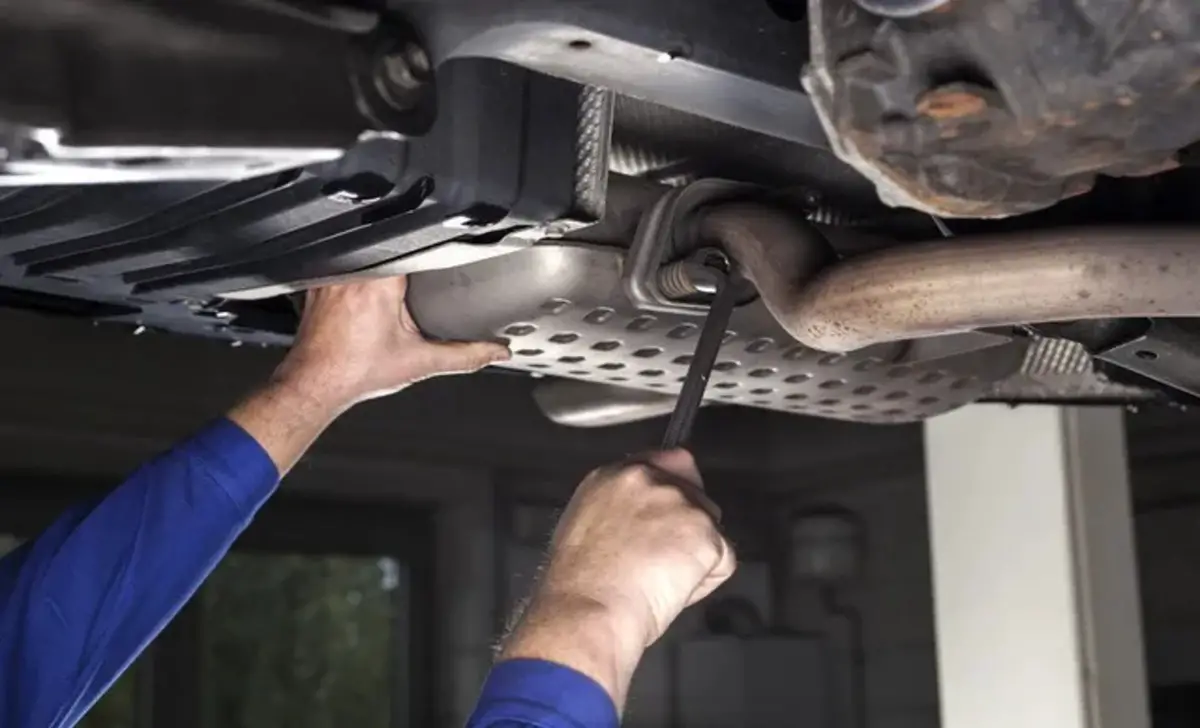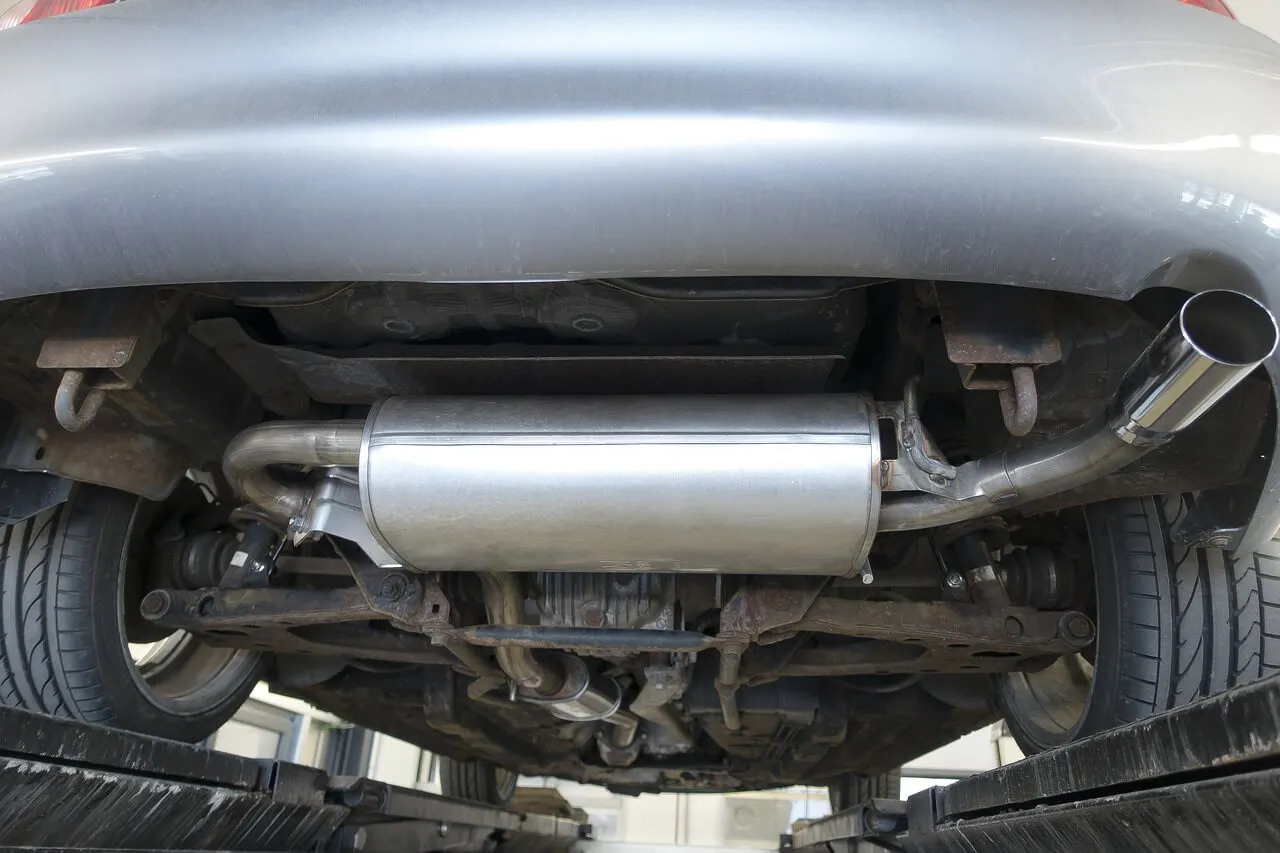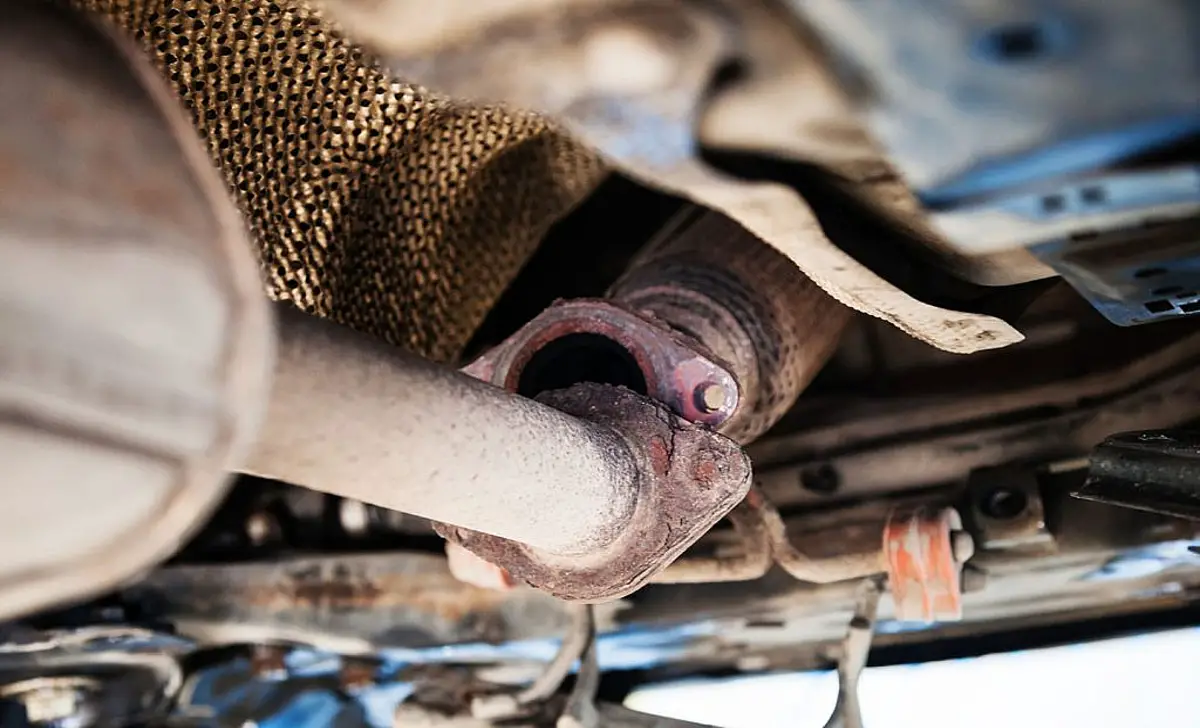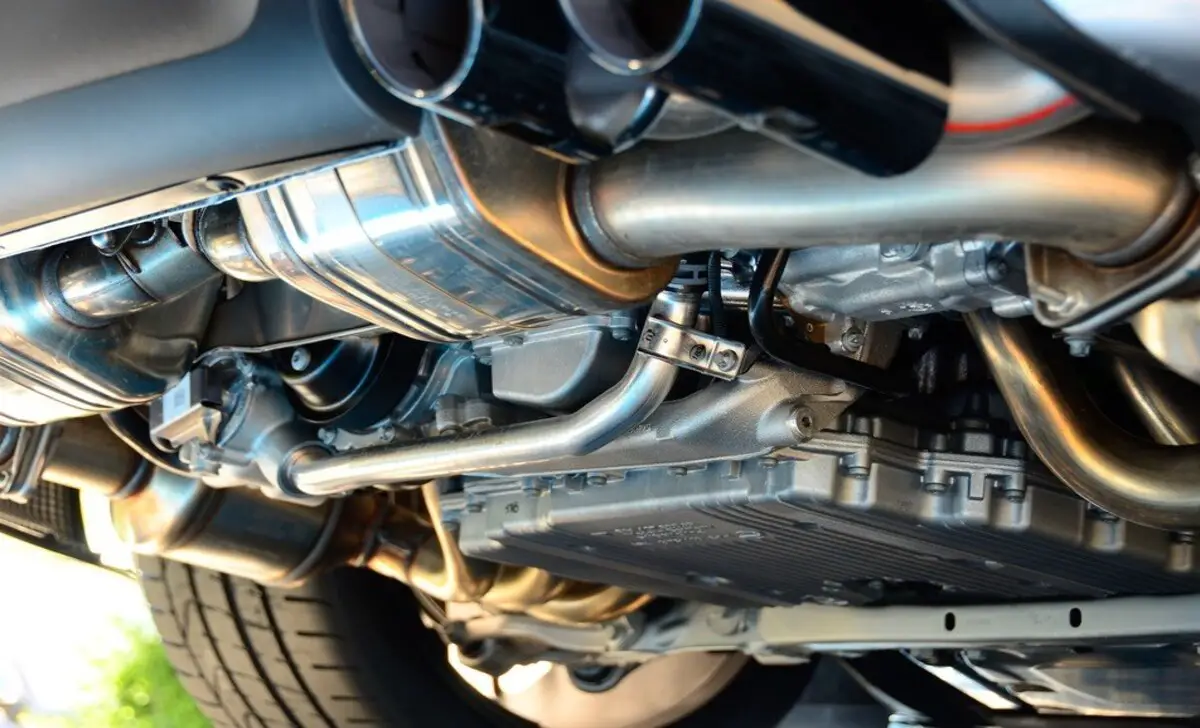Car exhaust repair is the repair or replacement of components that may have failed due to age, wear, and tear, or other causes.
You can do exhaust repair jobs on a DIY basis if you have the necessary tools and expertise, or you can go to a professional mechanic for help. When choosing a mechanic to do your exhaust repairs, ensure they are qualified and licensed. Only a qualified and experienced mechanic should perform car exhaust repairs.
But if you ever found yourself fixing the exhaust system or wondering why your car needs repair, this blog should help you. We’ll discuss exhaust system repair and its mechanics in detail so that you won’t be caught off guard when it’s your turn to get repairs done.

Types Of Car Exhaust Repairs

Car exhaust repairs can range from minor repairs to more serious repairs. Catalytic converters are a type of exhaust repair device used to reduce harmful emissions from the exhaust. Oxidizers help clean the air and remove toxins, while hangers secure mufflers to vehicles.
Tailpipe repairs involve replacing damaged tailpipes, silencers reduce noise levels emitted from the exhaust system, and muffler repairs involve replacing a muffler if it is damaged or worn out.
These types of exhaust repairs can be costly and take time, so it’s important to check your vehicle’s exhaust system for any signs of damage before making any decisions regarding exhaust repairs.
Detailed Answer When Do You Repair Your Car Exhaust

A car exhaust is a very important part of the vehicle that needs to be repaired and maintained for optimal performance. It can become damaged due to various reasons. The most common damage that occurs to exhaust is rusting.
The rust can cause by water entering the exhaust from the air filter or gas seeping into the muffler, which can lead to corrosion. You should also regularly check your car’s engine and transmission fluids, brake fluid, and spark plugs and have them tested if necessary.
A damaged exhaust will emit louder noises and may also reduce fuel efficiency and increase emissions of harmful gases like carbon monoxide (CO). In such cases, you should consider having it repaired by a trusted mechanic.
You should repair your car exhaust whenever there is a noticeable deterioration in performance. This includes when the exhaust becomes noisy or smokey or begins to leak. You should also repair your car exhaust if you notice any rust or corrosion on the pipe, muffler, or tailpipe.
These conditions can cause damage to the exhaust pipe and muffler, which can lead to costly repairs. Also, you should repair your car exhaust if the noise level changes significantly. A muffler with damaged teeth may not be able to adequately muff the exhaust fumes, which could result in unwanted engine noise or even engine damage.
In some cases, you may also need to replace your car exhaust system altogether. For example, if the muffler no longer functions correctly due to severe rusting or corrosion, you should consider repairing it rather than replacing it entirely.
What Does My Car’s Exhaust System Do?

When your car exhaust system requires repair, the technician typically replaces one or more of the muffler, catalytic converter, and tailpipe components. If your car’s exhaust system requires major repairs, the technician may also replace the entire exhaust system.
This is because these components are vital in reducing exhaust emissions from a vehicle’s engine. Additionally, you should check your owner’s manual to determine when to repair your car’s exhaust system. This will ensure optimum performance and efficiency from your car’s exhaust system.
Symptoms Of Exhaust Problems

If you notice exhaust problems on your vehicle, a mechanic must check them out as soon as possible. Exhaust problems can cause various symptoms, including poor fuel economy, rough idle, and reduced engine performance. When do you repair exhaust? You should repair the exhaust if it’s showing signs of damage or wear, such as smoking or unusual noise from the exhaust system.
When performing routine maintenance, you should also check the exhaust system for leaks and corrosion. This will help prevent damage and keep the system functional for as long as possible.
If you notice exhaust problems, here are some preventive measures you can take: – Check the gas cap for openings before each use – Use only approved fuel – Avoid over-revving the engine – Keep muffler and tailpipe clean – Avoid transporting fumes inside your vehicle – Take regular breaks from driving – Avoid smoking in the vehicle
Most Common Exhaust Problems

A broken exhaust pipe can reduce engine performance and cause various problems. Symptoms of a broken exhaust include a rumbling noise, reduced fuel efficiency, and poor acceleration. When the exhaust pipe breaks, carbon deposits can form on the catalytic converter, muffler, or tailpipe resulting in an exhaust pipe leak.
If a leak occurs, it may cause severe engine damage and may result in a fire. Repairing your car exhaust is usually not too expensive and can do by a professional mechanic. However, it’s important to have your exhaust inspected by a mechanic before any major repairs are made. If you notice any signs of a broken exhaust, don’t hesitate to take your car in for repair.
How To Prevent Exhaust Problems

To prevent exhaust problems, check the gas cap before each use and use only approved fuel. Avoid over-revving the engine, and keep the muffler and tailpipe clean. Avoid transporting fumes inside your vehicle, take regular breaks from driving, and avoid smoking in the vehicle, as corrosion can cause exhaust pipe leaks.
- Regularly check your car’s exhaust system for signs of trouble.
- Use exhaust filters to clean and protect your car’s exhaust system.
- Whenever you notice any exhaust problems, get your vehicle inspected by a professional exhaust repair specialist.
- Avoid driving with a damaged or misaligned exhaust system. This could lead to exhaust problems and engine damage.
Things To Keep In Mind Before Repairing Car Exhaust

When repairing car exhaust, it’s important to consider the type of exhaust system and the time of year. Some exhaust systems design for specific climates, so it’s important to check the exhaust system’s manufacturer for recommendations. This could help you choose the most appropriate repair for your car.
For example, repairs during the colder months are typically done to avoid potential damage. When repairing exhaust systems in warm climates, be aware of how windy or rainy it is before making a repair decision. Finally, consider your car’s age and its exhaust system’s condition.
Older cars may require more extensive repairs than newer models. Generally, it’s important to follow the manufacturer’s guidelines and repair exhaust systems only as a certified mechanic recommends.
Tips For Repairing Car Exhaust

The best time to repair car exhaust is when the system is relatively new and has not been subjected to much wear and tear. If you have a breakdown, it is always preferable to take your car to a mechanic specializing in car exhaust repairs.
When repairing car exhaust, it’s important to use the correct parts. Also, it is crucial to remove all the dirt and debris from the exhaust system before repairing it. Here are some tips to keep in mind when repairing car exhaust:
- Avoid overrevving the engine. This can damage the engine and exhaust system.
- Muffler and tailpipe should keep clean for proper function.
- Avoid transporting fumes inside your vehicle, take regular breaks from driving, and avoid smoking in the vehicle, as corrosion can cause exhaust pipe leaks.
Following these tips ensures that your car’s exhaust system lasts longer and functions properly.
Conclusion
Repairing exhaust system problems is important for maintaining a safe and comfortable driving experience. Contact an auto repair pro for inspection and solutions if you notice any exhaust system leak, engine misfiring, or other exhaust system issues.
While many factors affect exhaust system performance, including age, mileage, type of vehicle, and driving conditions, improper maintenance and repairs play a big role in exhaust system wear and tear. We have included inputs to help you better understand the various aspects of car exhaust system repair.
Frequently Asked Questions
1.When Should I Fix My Exhaust?
Ans: It’s generally recommended that you fix your car exhaust every 7,500 miles. This includes replacing the catalytic converter, which helps reduce the pollutants emitted from your car. Various factors can affect when you should fix your exhaust, so it’s always best to consult a mechanic.
2.How Do You Know You Have An Exhaust Problem?
Ans: If you’re noticing any of the following signs that your car exhaust may need to repair, it’s important to take action and schedule an inspection by a mechanic.
- Your car exhaust makes a loud noise when driving or running.
- You’re noticing that your fuel efficiency is decreasing or smoke is coming out of the tailpipe.
- You’re having problems performing well in cold weather conditions.
3.What Are The Symptoms Of A Damaged Exhaust System?
Ans: The most common symptoms of a damaged exhaust system decrease reduced engine performance, fuel efficiency, and decreased emissions. To diagnose exhaust system damage, technicians may use an exhaust gas analyzer.
4.Should I Get An Estimate Before Fixing My Car Exhaust Or Not?
Ans: Get an estimate before fixing your car exhaust. This way, you can decide whether the expense of repairing your car exhaust is worth it.
5.What Happens If I Don’t Have My Car Exhaust Repaired?
Ans: If you do not repair your car exhaust, it may result in several problems down the road. For starters, if your muffler cloges, it will cause your car to sound different when driving. This can also lead to a loss of engine power and even a dangerous situation.
